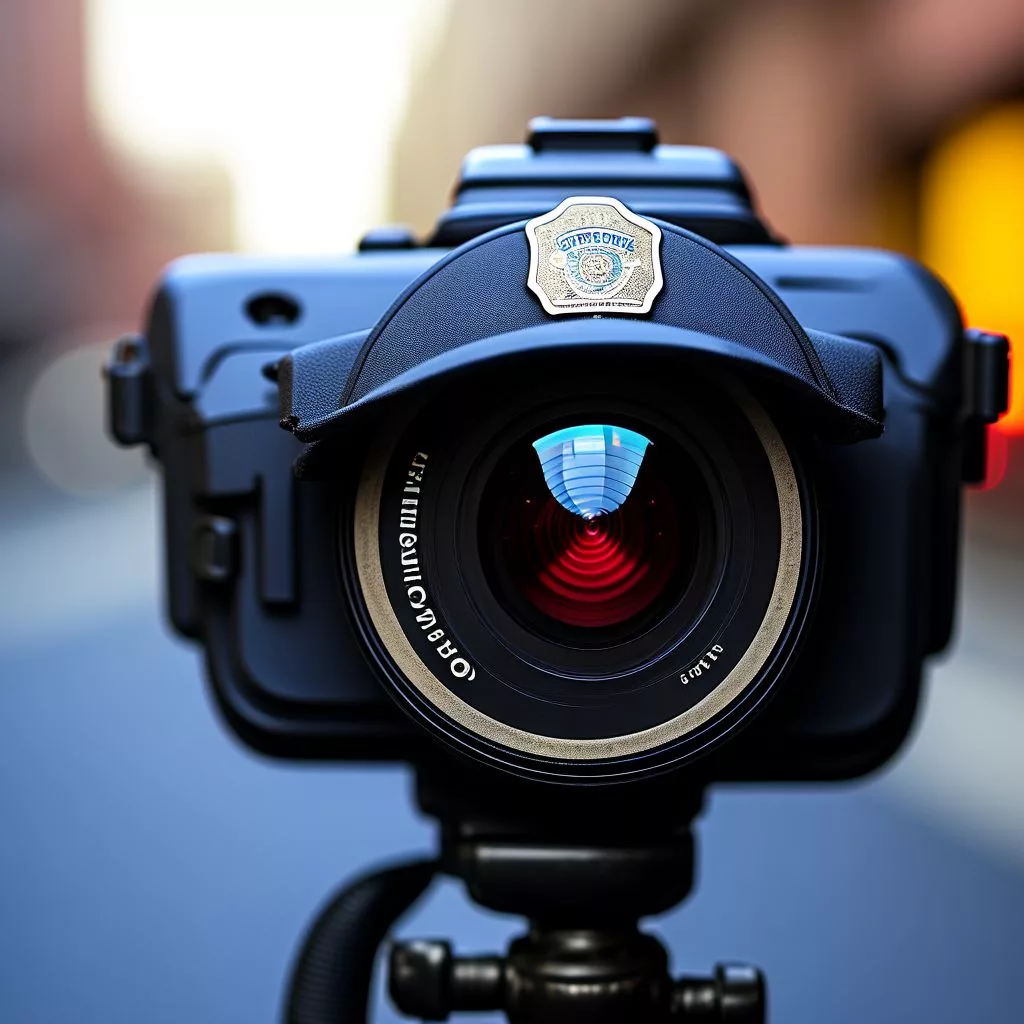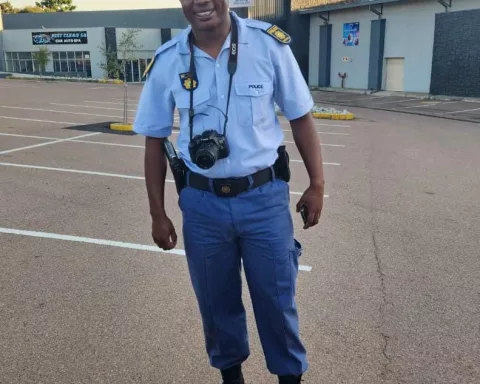South Africa is taking a big step to modernize its police force by introducing body-worn cameras for officers, starting on April 1, 2025. This exciting move aims to make police actions more transparent and build trust with communities by recording interactions. With support from political leaders, these cameras will help protect both officers and the public, providing clear evidence during disputes. While there are challenges ahead, like training and managing the cameras, this initiative offers hope for better safety and accountability in policing, showing South Africa’s commitment to progress and change.
How is South Africa modernizing its policing with technology?
South Africa is modernizing its policing by introducing body-worn cameras for police officers, set to launch on April 1, 2025. This initiative aims to enhance transparency and accountability, improve public safety, and build trust between law enforcement and communities through documented interactions.
Modernizing Law Enforcement
In the ever-evolving field of law enforcement, technology has become a pivotal force in shaping public perceptions and enhancing operational effectiveness. In this context, South Africa’s decision to equip police officers with body cameras represents a substantial step towards modernizing the force and promoting transparency. This initiative, announced by Police Minister Senzo Mchunu, marks a critical juncture in the nation’s efforts to improve public safety and accountability.
Set to launch on April 1, 2025, the deployment of body-worn cameras by the South African Police Service (SAPS) aims to bolster transparency and accountability within the force. This move has been strongly advocated by the Democratic Alliance (DA) in Parliament, highlighting an urgent need for reform. Body cameras, often regarded as impartial observers, are expected to play a crucial role in documenting police interactions with the public and fostering an environment of trust.
The first phase of this program involves acquiring 100 body cameras, with each unit priced at approximately R29,000. The initial investment of R2,881,800 for 2025 represents a considerable financial commitment from the government. Over the next five years, the total procurement cost is projected to reach R14.4 million, reflecting the long-term dedication needed to sustain and expand the initiative.
Advocating for Change
Mzamo Billy, a DA parliamentary member on the select committee for security and justice, has been a staunch advocate for adopting body cameras. Billy underscores the importance of this technological advancement in enhancing police transparency across South Africa. The DA’s endorsement signifies a broader consensus that body-worn cameras are not just beneficial but essential for modern policing. These devices offer protection for police officers against unfounded allegations of misconduct or negligence, thereby reducing undue burdens on law enforcement personnel.
The introduction of body cameras in South Africa aligns with global trends, where many countries have incorporated similar measures in their law enforcement strategies. In nations like the United States and the United Kingdom, body cameras have become integral to policing, particularly in situations subject to public scrutiny. These cameras provide clear and objective evidence, playing a crucial role in resolving disputes over police-public interactions.
Despite the widespread support for the initiative, there is skepticism regarding the limited initial rollout. Concerns have been raised about the practicality of deploying only 100 cameras, with questions about the potential risks of these devices being lost, damaged, or stolen. Billy emphasizes the need for an effective asset management plan to address these risks, ensuring the program’s initial successes are not diminished over time.
Overcoming Challenges
This skepticism highlights a broader challenge: ensuring that the introduction of body cameras leads to meaningful and systemic change. Successful implementation demands comprehensive training for officers to use the devices correctly and understand the legal and ethical considerations involved. Additionally, the management of data—storing, analyzing, and securing footage—presents further challenges that SAPS must tackle with diligence and foresight.
The unique sociopolitical landscape of South Africa adds layers of complexity to the initiative. Historical tensions between communities and law enforcement necessitate a nuanced approach to rebuilding trust. While body cameras alone cannot resolve deep-seated issues, they represent a step in the right direction. By capturing real-time interactions, these devices can provide transparency, potentially easing tensions and paving the way for constructive dialogue between police and communities.
In the context of South Africa’s rich history, art, and culture, the adoption of body cameras mirrors broader themes of change and adaptation. The nation’s journey toward democracy and social justice has been marked by significant milestones, each contributing to a larger narrative of progress. The integration of technology into policing is another chapter in this ongoing saga, reflecting the spirit of innovation and resilience inherent in the nation’s fabric.
Navigating the Future
While rolling out body cameras presents logistical and financial challenges, it also offers an opportunity to redefine the relationship between law enforcement and the public. As SAPS embarks on this new journey, the lessons learned from international counterparts can provide valuable insights, helping to navigate the complexities of implementation in a manner that respects South Africa’s unique context and needs.
In conclusion, introducing body cameras in South Africa signifies a hopeful advance toward transparency and accountability in policing. This initiative has the potential to transform public perceptions of law enforcement and enhance the safety and effectiveness of police operations. However, success hinges on meticulous planning, robust support systems, and a commitment to ongoing evaluation and improvement—a testament to the nation’s dedication to progress and reform. By embracing this technological advancement, South Africa positions itself at the forefront of modern policing, setting a precedent for other nations striving for similar transformations.
FAQ on Body-Worn Cameras in South African Policing
What is the primary goal of introducing body-worn cameras for police officers in South Africa?
The primary goal of introducing body-worn cameras is to enhance transparency and accountability in policing. By documenting interactions between police officers and the public, these cameras aim to build trust within communities and provide clear evidence during disputes.
When will the body-worn camera initiative be implemented?
The body-worn camera initiative is set to launch on April 1, 2025. This date marks the beginning of the South African Police Service (SAPS) deployment of these devices.
How many body cameras will be initially rolled out, and what is their cost?
The first phase of the initiative will involve acquiring 100 body cameras, each priced at approximately R29,000. The total initial investment for 2025 is projected to be R2,881,800, with an expected total procurement cost of R14.4 million over the next five years.
Who is advocating for the adoption of body-worn cameras in South Africa?
Mzamo Billy, a member of the Democratic Alliance (DA) in Parliament, has been a strong advocate for the adoption of body cameras. The DA’s endorsement reflects a broader consensus on the necessity of this technology for modern policing.
What challenges does SAPS anticipate in implementing body-worn cameras?
SAPS faces several challenges, including training officers to use the cameras effectively, managing the data generated (storage, analysis, and security), and addressing skepticism regarding the limited initial rollout of only 100 cameras. Concerns about equipment loss, damage, or theft also highlight the need for a robust asset management plan.
How might body-worn cameras impact the relationship between law enforcement and communities in South Africa?
Body-worn cameras have the potential to redefine the relationship between law enforcement and communities by fostering transparency and accountability. By capturing real-time interactions, these devices may help ease historical tensions, encourage constructive dialogue, and ultimately contribute to rebuilding trust between police and the public. However, their success will depend on careful implementation and ongoing evaluation.












